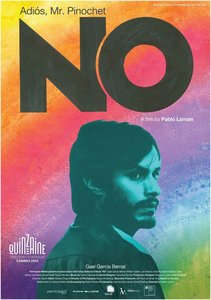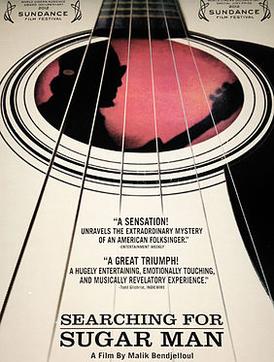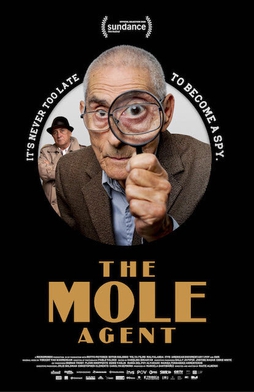Related Research Articles

María Natalia Lafourcade Silva is a Mexican singer and songwriter who performs in genres such as pop rock, jazz, and folk music. Since her debut in 2002, she has been one of the most successful singers in Latin America and the United States. Lafourcade's voice has been categorized as a lyric soprano.

Tanjore Balasaraswati, also known as Balasaraswati, was an Indian dancer, and her rendering of Bharatanatyam, a classical dance style originated in the South Indian state of Tamil Nadu, made this style of dancing well known in different parts of India and many parts of the world.

Gian Marco Javier Zignago Alcóver is a Peruvian musician and actor. He has won the Latin Grammy Award for the Best Singer-Songwriter Album three times. First in 2005 for his album Resucitar, in 2011 for his album Días Nuevos, and in 2012 for his album 20 Años. Gian Marco was named UNICEF Goodwill Ambassador in Peru.
Eleanor Hall is an Australian journalist and presenter.
Days of Waiting (1991) is a documentary short film directed, written and produced by Steven Okazaki about Estelle Ishigo, a Caucasian artist who went voluntarily to an internment camp for Japanese Americans during World War II. The film was inspired by Ishigo's book, Lone Heart Mountain, and won an Academy Award for Best Documentary and a Peabody Award. It was presented on PBS by POV and the Center for Asian American Media.

Patricio Guzmán Lozanes is a Chilean documentary film director, screenwriter, director. He is most known for his film trilogy The Battle of Chile (1975–1979) and more recently for another trilogy; Nostalgia for the Light (2010), The Pearl Button (2015) and The Cordillera of Dreams (2019).
David Bradbury is an Australian film maker who began his career in 1972 as an ABC radio journalist, and has since produced 21 documentary films, including many that tackle difficult political issues and highlight the plight of the disadvantaged. Bradbury has won many international film festival prizes, received five Australian Film Industry awards, and two Academy Award nominations. He graduated from the Australian National University with a degree in political science.
Hank Aaron: Chasing the Dream is a 1995 American documentary film directed by Michael Tollin. The story follows baseball slugger Hank Aaron's pursuit of Babe Ruth's all-time record for home runs.

Chilean cinema refers to all films produced in Chile or made by Chileans. It had its origins at the start of the 20th century with the first Chilean film screening in 1902 and the first Chilean feature film appearing in 1910. The oldest surviving feature is El Húsar de la Muerte (1925), and the last silent film was Patrullas de Avanzada (1931). The Chilean film industry struggled in the late 1940s and in the 1950s, despite some box-office successes such as El Diamante de Maharajá. The 1960s saw the development of the "New Chilean Cinema", with films like Three Sad Tigers (1968), Jackal of Nahueltoro (1969) and Valparaíso mi amor (1969). After the 1973 military coup, film production was low, with many filmmakers working in exile. It increased after the end of the Pinochet regime in 1989, with occasional critical and/or popular successes such as Johnny cien pesos (1993), Historias de Fútbol (1997) and Gringuito (1998).
The cinema of Ecuador has a long history, including both short and feature-length films made throughout the 20th century, but until recently Ecuadorian film has generally not had a large impact.

Catalina Saavedra Pérez is a Chilean film, stage and television actress. She is known to international audiences for playing the title character in the 2009 film The Maid, for which she received several awards and nominations.

Pablo Larraín Matte is a Chilean filmmaker. He is known for directing films such as No (2012), Neruda (2016), Jackie (2016), Spencer (2021), El Conde (2023), and Maria (2024). Larraín and his brother Juan de Dios co-produced Sebastián Lelio's A Fantastic Woman (2017), which was the first Chilean film to win the Academy Award for Best Foreign Language Film. In 2021, Larrain directed the Apple TV+ psychological romance horror miniseries Lisey's Story.

Nostalgia for the Light is a 2010 documentary film by Patricio Guzmán to address the lasting impacts of Augusto Pinochet's dictatorship. Guzmán focuses on the similarities between astronomers researching humanity's past, in an astronomical sense, and the struggle of many Chilean women who still search, after decades, for the remains of their relatives executed during the dictatorship. Patricio Guzmán narrates the documentary himself and the documentary includes interviews and commentary from those affected and from astronomers and archeologists.

No is a 2012 historical drama film directed by Pablo Larraín. The film is based on the unpublished stage play El plebiscito written by Antonio Skármeta. Mexican actor Gael García Bernal plays René, an in-demand advertising man working in Chile in the late 1980s. The film captures the advertising tactics in the political campaigns for the 1988 Chilean national plebiscite, when the citizenry decided whether or not dictator Augusto Pinochet should stay in power for another eight years. At the 85th Academy Awards, the film was nominated for the Best Foreign Language Film Oscar.

Searching for Sugar Man is a 2012 documentary film about a South African cultural phenomenon, written and directed by Malik Bendjelloul, which details the efforts in the late 1990s of two Cape Town fans, Stephen "Sugar" Segerman and Craig Bartholomew Strydom, to find out whether the rumoured death of American musician Sixto Rodriguez was true and, if not, to discover what had become of him. Rodriguez's music, which had never achieved success in his home country of the United States, had become very popular in South Africa, although little was known about him there.

"Cuando nos volvamos a encontrar" is a song by Colombian singer-songwriter Carlos Vives featuring the American singer Marc Anthony, for his fourteenth studio album Más + Corazón Profundo (2014). The song was released by Sony Music Latin as the second single from the record.
A Promise to the Dead: The Exile Journey of Ariel Dorfman is a 2007 Canadian documentary film directed by Peter Raymont. The film is based on the 1998 memoir Heading South, Looking North by long-exiled Chilean writer and human rights activist Ariel Dorfman, and profiles him during a trip back to his homeland.

Babenco: Tell Me When I Die is a 2019 Brazilian documentary film directed by Bárbara Paz. The film premiered at the 2019 Venice Film Festival, where it won Best Documentary on Cinema. It focuses on the last years of life of filmmaker Hector Babenco, who died in 2016, victimized by a cancer. It was selected as the Brazilian entry for the Best International Feature Film at the 93rd Academy Awards, but it was not nominated.

The Mole Agent is a 2020 internationally co-produced documentary film directed by Maite Alberdi. It was screened at the 2020 Sundance Film Festival in the World Cinema Documentary Competition. At the 93rd Academy Awards, It was nominated for the Academy Award for Best Documentary Feature and was selected as the Chilean entry for Best International Feature Film, making the shortlist of fifteen films.
References
- ↑ "NY Times: Chile: When Will It End?". Movies & TV Dept. The New York Times . Archived from the original on 14 October 2012. Retrieved 17 November 2008.
- ↑ "The 59th Academy Awards (1987) Nominees and Winners". oscars.org. Retrieved 16 October 2011.